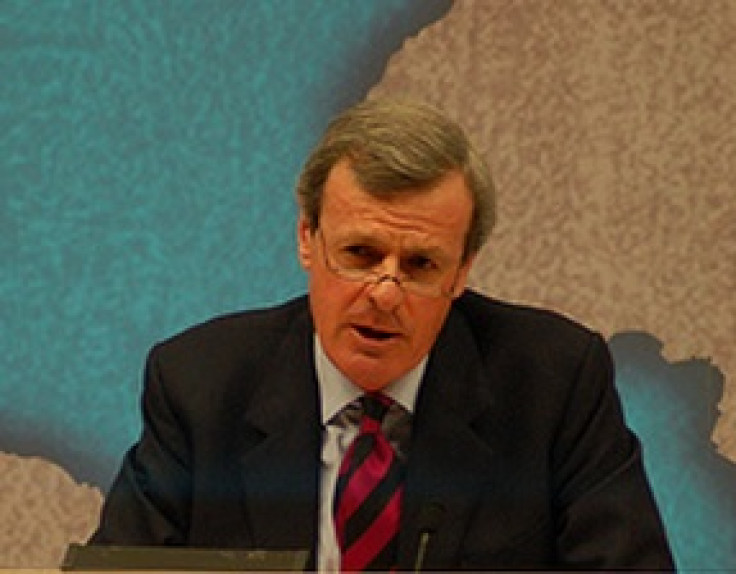Election 2015: General Sir Richard Shirreff blasts anti-Trident parties for 'living in a fool's paradise'

The SNP and the Greens are "living in a fool's paradise" by opposing the renewal of Trident, a former Nato commander has declared.
General Sir Richard Shirreff told IBTimes UK that scrapping the nuclear deterrent would send the wrong message to our allies and enemies.
The Iraq veteran, who served as deputy supreme allied commander in Europe until March 2014, said: "Right now is not the time to get rid of Trident and those who say it is are living in a fool's paradise.
Right now is not the time to get rid of Trident and those who say it is are living in a fool's paradise
"I heard the opposition party leaders' debate the other day when there was much talk about 'you wouldn't use Trident against Islamic State (Isis)'.
"It is absolutely infantile to be talking about that because the reality is it's about projection of power."
Shirreff's comments come after Michael Fallon, the Tory defence secretary, controversially claimed that Ed Miliband would "stab the UK in the back" by agreeing to scrap the system in order to secure a post-election deal with the SNP in the event of a hung parliament.
But the Labour leader hit back and accused the Tories of "deceit and lies" in the run-up to the 7 May vote.
However, both parties and the Liberal Democrats face criticism from Shirreff for failing to commit to Nato's 2% of GDP defence spending target in their election manifestos.
Defence spending

The former commander, who now works in the wold of strategic risk with his Strategia firm, argued that the parties had committed an "abdication of responsibility" by not agreeing to the target.
"It demonstrates to me that they don't think or don't understand the importance of committing to 2%. [The spending target] is a remedy and can put right many of the gambles that have been taken in the last 10 years after successive resource driven defence reviews, which have successfully cut away the capability of the armed forces," he said.
Shirreff added: "[A commitment to the target] demonstrates to our principle ally (the US) that we are prepared to pay for our security and not expect the Americans to underwrite it."
He also warned that defence policy had not been "properly discussed" as the election looms and argued that it reflected a "degree of political cynicism" among the main parties.
So far Ukip and the DUP are the only parties who have committed to the 2% GDP target. Cameron, meanwhile, has faced pressure from his backbenchers over the issue.
But the prime minister has argued that the UK had been meeting the target and said the "right time" to adjust the defence budget would be in a National Security Strategy and Strategic Defence and Security Review after the election.
"We can only have strong, well-funded Armed Forces by continuing to build a stronger economy. We have the second largest defence budget in Nato and the largest in the EU," the Tories' manifesto reads.
"We are meeting Nato's two targets: that each country should spend two per cent of its gross national income on defence, and of that spending 20 per cent should go on major equipment."
© Copyright IBTimes 2024. All rights reserved.






